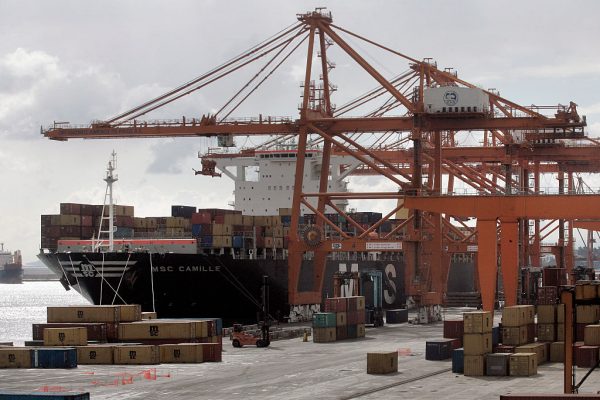Europe Should Temporarily Ban Chinese Takeovers: Leader of Largest EU Political Alliance
The European Union should impose a temporary ban on Chinese takeovers of companies that are currentl..
The European Union should impose a temporary ban on Chinese takeovers of companies that are currently undervalued or have business problems because of the COVID-19 crisis, the leader of the blocs largest political alliance said on May 17.
Manfred Weber, a senior German conservative and chair of the center-right European Peoples Party (EPP) in the EU Parliament, told Germanys Welt am Sonntag newspaper that he was in favor of declaring a twelve-month ban for Chinese investors who want to buy European firms.
“We have to see that Chinese companies, partly with the support of state funds, are increasingly trying to buy up European companies that are cheap to acquire or that got into economic difficulties due to the coronavirus crisis,” he said.
The European Union, therefore, should react in a coordinated way and put an end to the “Chinese shopping tour” by imposing a twelve-month moratorium on sales of European companies until the coronavirus crisis is hopefully over, Weber said.
“We have to protect ourselves,” he added.
The German government adopted the draft bill last month that tightens foreign investment scrutinizing and expands the government power to prevent unwanted acquisitions. Investors in China and other Asian countries may consider acquiring European companies at bargain prices, said Nestor Paz-Galindo, UBS Group AGs head of mergers and acquisitions, according to The Wall Street Journal. Increasing regulatory scrutiny can prevent disadvantageous takeovers, he said.
Anders Fogh Rasmussen, the founder of Rasmussen Global warned against Chinese strategic takeovers in its op-ed for the German newspaper Suddeutsche Zeitung. “Theres no doubt that China is playing the COVID crisis to its geopolitical advantage,” he wrote.
The Chinese regime used the past financial crises in 2008 and the euro crisis in 2012 to acquire strategic assets abroad at discount prices, according to a report by the Mercator Institute for China Studies.
Risks Associated with Chinese Takeovers

Chinese investment in Europe comes with strings attached, Rasmussen said. In May 2017 Greece and China signed a three-year plan covering Chinese investments in Greek infrastructure. Since 2016, Greece, as a member of the EU, several times opposed EU proposals that criticized the Chinese regime policies and human rights record.
In Northern Europe, the Chinese regime targeted high-tech businesses, which made it possible to transfer advanced technologies to China, said Rasmussen. The Chinese takeover of German robot manufacturer Kuka in 2016 was a wake-up call for Germany that made it realize the need for protecting its strategic assets.
Chinas State Grid in 2018 attempted to buy a stake in German power grid operator 50Hertz after one of its stakeholders decided to sell 20 percent of its share. When the German government was unable to find a private investor the German state-owned bank stepped in to prevent the Chinese regime from buying a critical infrastructure asset, according to Deutsche Welle.
The Chinese communist regime uses two main strategies to advance its ambitions in Europe, The Belt and Road Initiative, and 5G.
The Belt and Road Initiative (BRI)—also known as One Belt, One Road or OBOR—is a plan for the Chinese regime to invest trillions of dollars to build critical infrastructures, such as bridges, railroads, ports, and energy facilities, in dozens of countries on four continents.
In financially robust countries, Chinese companies enter into equity participation or joint ventures. With financially weaker countries, China invests large amounts of money locally and attempts to obtain the right to operate the ports, often through opaque lending practices leading to debt traps.
In Europe, Read More – Source

